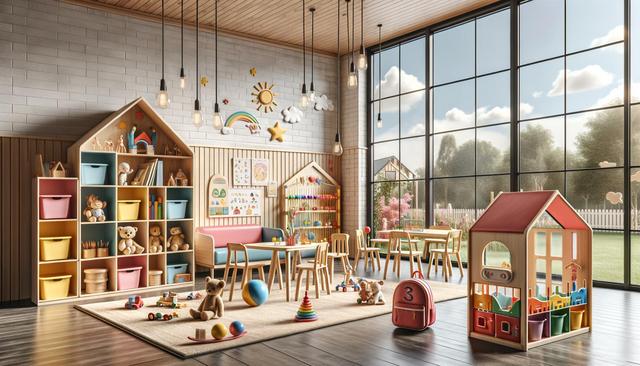Understanding the Role of Daycare Services
Daycare services play a broader role than many people realize. Often misperceived as mere babysitting, modern daycare centers are designed to support children’s cognitive, emotional, and social development. These environments offer structured daily routines filled with activities that promote learning and help build critical life skills. Educators in daycares are trained to guide children through early milestones, fostering growth through play, interaction, and guided teaching moments. Rather than simply watching over children, daycare professionals are actively involved in shaping the foundations of future learning and behavior.
Parents may not always be aware of the level of planning and intention that goes into a daycare program. Daily schedules are often crafted with input from child development specialists and include elements such as storytime, arts and crafts, physical play, and quiet time. These segments are not randomly chosen; they are deliberately structured to support brain development, coordination, and emotional regulation. Far from passive environments, quality daycare centers serve as vibrant learning communities for young minds.
What Happens in a Daycare? A Closer Look
A typical day in a daycare involves much more than supervision. Children are engaged in a variety of activities that aim to stimulate curiosity, encourage collaboration, and build independence. These activities are crucial in helping children develop key life skills. For example, group play teaches cooperation and empathy, while individual projects foster creativity and decision-making.
Here are some common components of a daycare day:
- Circle time where children learn about numbers, letters, and the calendar
- Story sessions to improve listening skills and language development
- Arts and crafts to enhance fine motor skills and creativity
- Outdoor play for physical development and social interaction
- Nap or quiet time to support rest and emotional balance
Each of these parts serves a purpose in a child’s overall development. They are carefully balanced to ensure that children are not overwhelmed, while still being challenged and stimulated throughout the day.
Emotional and Social Growth in a Daycare Setting
Daycare is not only about preparing children academically, but also emotionally and socially. Young children learn how to express their feelings, resolve conflicts, and establish friendships. These are essential life skills that form the basis for future interpersonal relationships in school and beyond. By interacting with peers and caregivers, children begin to understand empathy, cooperation, and respect for others.
Emotional growth is supported through:
- Positive reinforcement and encouragement
- Guided conflict resolution techniques
- Opportunities to express emotions through art and storytelling
- Safe spaces for calming down and self-reflection
Social development is equally emphasized. Children learn about taking turns, sharing, and listening—skills that will benefit them in classrooms and social circles as they grow. Caregivers serve as important role models, demonstrating appropriate social behavior and guiding children through interactions.
The Educators Behind the Scenes
It’s important to recognize the dedication and professionalism of daycare staff. Far from being simply caretakers, these individuals often hold certifications in early childhood education and participate in ongoing training to stay current with best practices. Their work involves careful observation, personalized support, and a deep understanding of child development stages.
Caregivers and educators in daycare settings are responsible for:
- Creating safe and engaging learning environments
- Monitoring developmental progress and identifying potential concerns
- Communicating effectively with parents about their child’s day and growth
- Adapting activities to meet individual needs and learning styles
The work is both physically and emotionally demanding, yet profoundly rewarding. For many educators, the joy of seeing a child take their first steps toward independence or successfully resolve a conflict with a peer makes the effort worthwhile.
Choosing the Right Daycare for Your Family
Finding a daycare that aligns with your family’s values and your child’s needs requires careful consideration. Key factors include the center’s philosophy, staff qualifications, child-to-caregiver ratio, cleanliness, safety measures, and the types of activities offered. Visiting multiple centers, asking questions, and observing how children interact with caregivers can provide helpful insights.
When evaluating options, consider:
- Whether the daily routine supports learning and development
- How caregivers interact with children—are they attentive and nurturing?
- The center’s policies on discipline, nutrition, and communication with parents
- Feedback from other parents and community reputation
Remember that your child’s comfort and happiness are top priorities. A supportive, well-structured daycare can ease the transition for both children and parents, laying a strong foundation for future success.
Conclusion: A Meaningful Start in a Nurturing Environment
For parents considering daycare, it’s worth taking a closer look at what these services truly offer. Far from being a simple drop-off solution, quality daycare environments support holistic child development. Through structured learning, emotional support, and meaningful social interaction, children gain vital skills that prepare them for school and life beyond. Understanding the depth of care and education that takes place in daycare settings can help families make informed decisions—and appreciate the powerful impact these environments can have on a child’s early years.




Leave a Reply